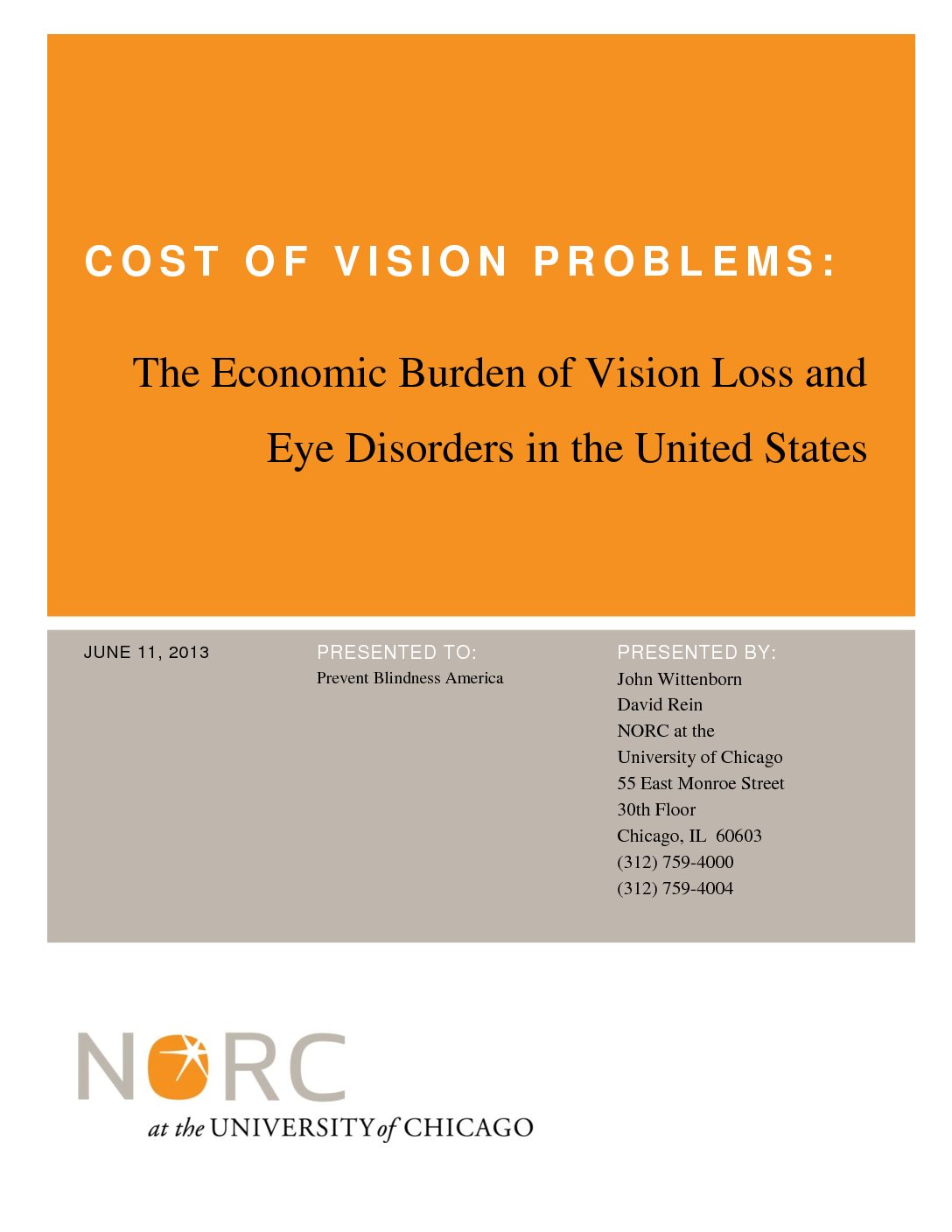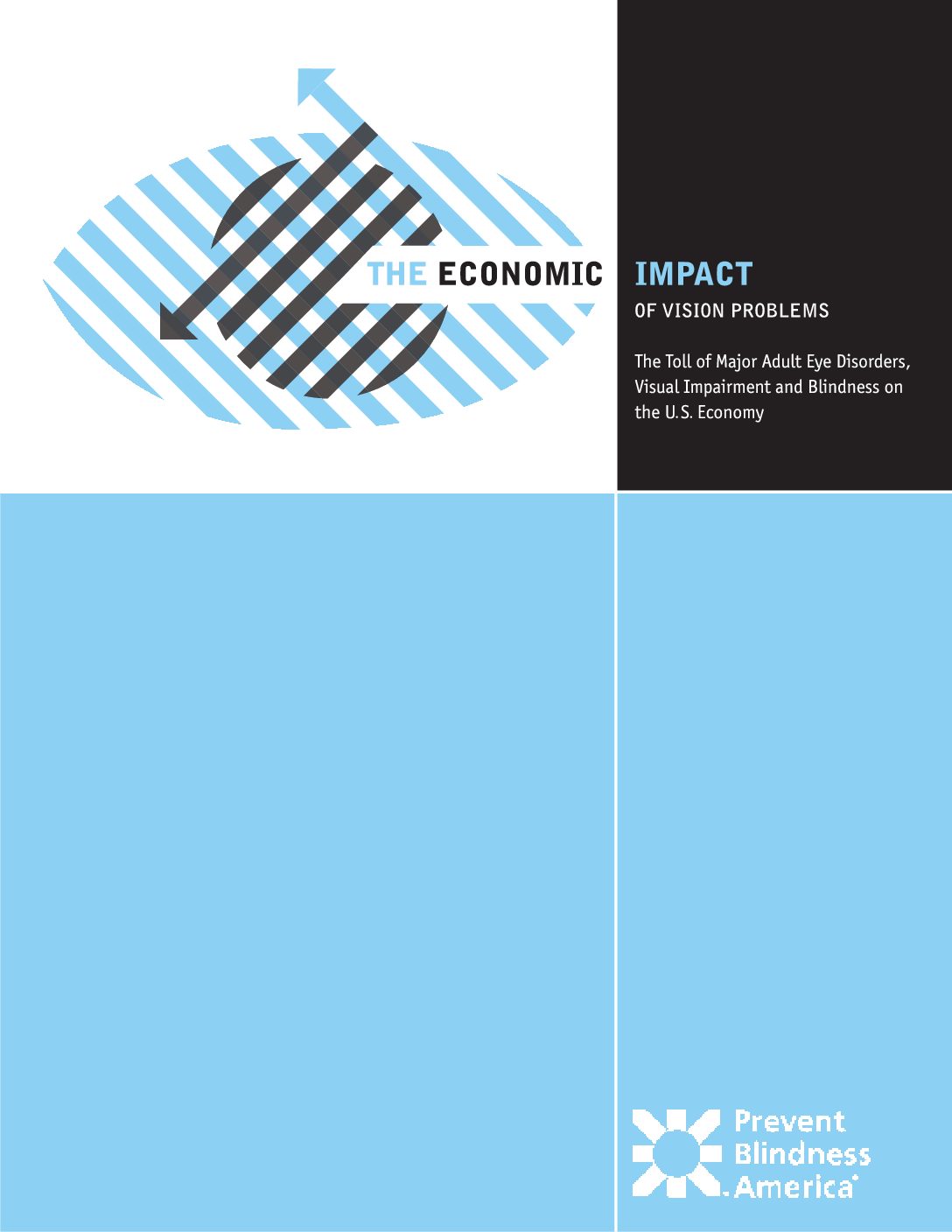In an era where healthcare coverage and costs are at the forefront of public debate and concern, it is vital to understand the magnitude of the economic burden of disease. This is especially true for eye disorders and vision loss, as these conditions often lead to chronic, life-long direct and indirect costs, which are likely to continue to increase with an aging population and quickly growing healthcare expenses.
This report serves to update the prior estimate of the economic burden of eye problems released by Prevent Blindness in 2007, which found the economic burden of eye problems among Americans aged 40 and older to be approximately $51.4 billion in 2004. While this landmark study has served as the benchmark estimate of the economic burden of eye problems in the United States, continued growth in medical costs, newly available data and methodologies, and a consensus for more comprehensive accounting of all costs for all ages have highlighted the need for an updated estimate of the economic burden of eye disorders and vision loss.
In this report, we employ more current data and updated methodologies to update and expand the previous estimate. We expand the analysis to include children and adults younger than age 40 by incorporating results from CDC-funded research on the economic burden of vision loss and eye disorders in this population. We capture medical costs for all diseases and conditions related to the eye and ocular adnexa. And we include costs for out-of-pocket and vision-plan paid expenses, such as routine eye examinations and vision correction.



